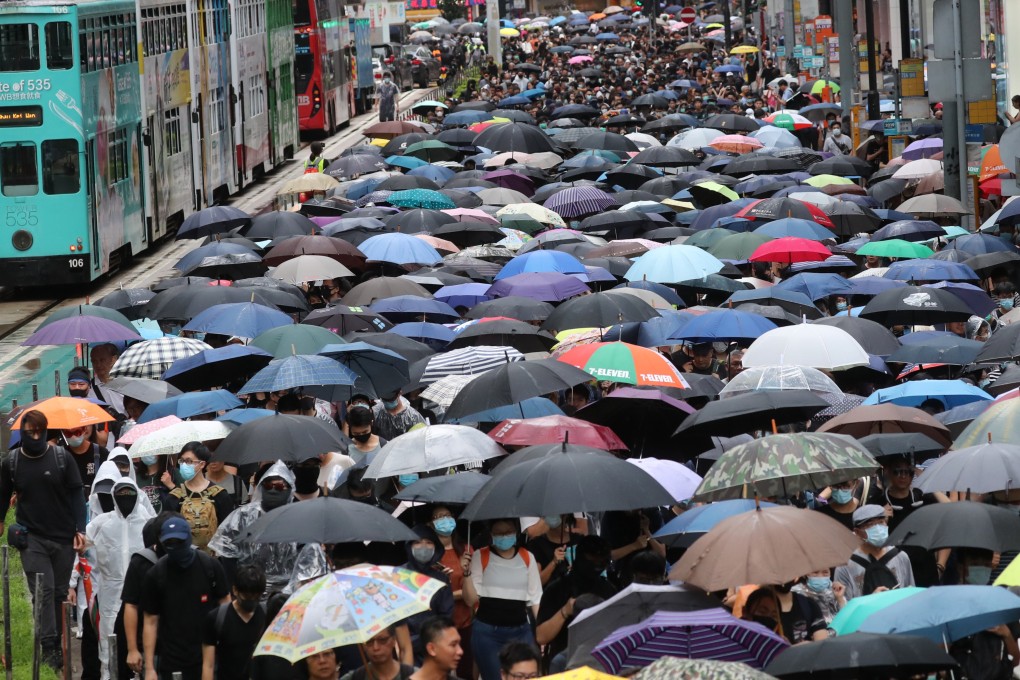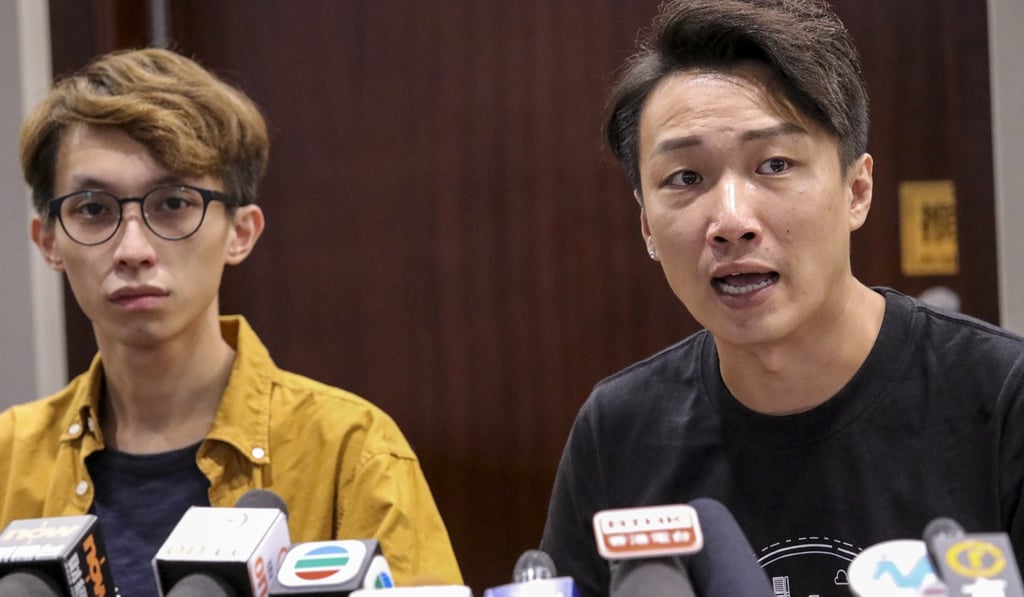Protesters make plans to ‘mourn’ National Day with marches, legally approved or not
- Civil Human Rights Front, organiser of previous mammoth marches, seeks police letter of no objection for Saturday rally and Tuesday march
- Users on online forum call for protest action in Kowloon, as well as road blockades, Sha Tin race disruption and targeting of airport

Anti-government protesters are gearing up for a showdown this weekend and on National Day, with or without police approval, as a major pro-democracy group plans two demonstrations on Hong Kong Island.
The Civil Human Rights Front, which organised two successful marches in June and on July 1, has sought police approval to march on National Day, as protesters debate among themselves whether to stage a show of unity or take guerilla-style district level action next Tuesday.
At a press conference on Wednesday, the front said it had applied for letters of no objection from police for a rally at Tamar Park in Admiralty on Saturday, and a march from Causeway Bay to Central next Tuesday.
The rally will mark the fifth anniversary of the 2014 Occupy movement, while the march will be held on the 70th anniversary of the People’s Republic of China.

Front vice-convenor Wong Yik-mo said people should “mourn” rather than celebrate on National Day.